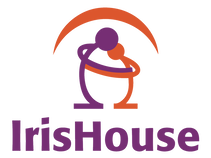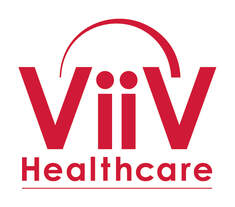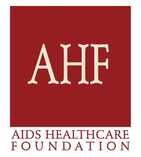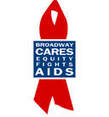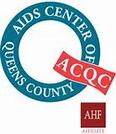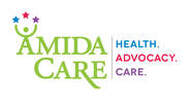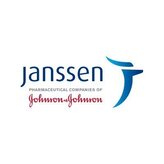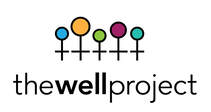18th Annual Women as the Face of AIDS Summit
Monday, May 8, 2023
THANK YOU FOR YOUR SUPPORT!
|
The 2023 Summit’s theme is “Reframing HIV: Refresh, Reflect & Renew
Monday, May 8, 2023 11am - 6pm Hybrid (In-person & Virtual) Summit via Whova In-person location - Bethel Gospel Assembly, 2-26 East 120th Street (between 5th and Madison Avenues). 11:00am - Opening Remarks - Ingrid Floyd, Executive Director, Iris House
Morning Plenary Session (Panel Discussion)
11:15am - 12:30pm Reframing HIV from Various Perspectives Panelists: Bre Azanedo, Nicole Bowles, Kimberly Canady & Jaivon Lewis Moderator: Ciarra "CiCi" Covin 12:30 - Coffee Break Afternoon Plenary Session 12:45pm - 1:45pm - Reframing HIV: Black Girls Spring for R&R Dr. Jasmine Ward and Deirdre Johnson Dr. Jasmine Ward is a public health consultant, educator, social entrepreneur, and public speaker devoted to achieving health equity for all.
Dr. Ward is a native of Chicago, Illinois but has made Arlington, Texas home. In addition to volunteering to lead BLiPH network, Dr. Ward supports various public health programs and organizations via consultancy, membership, and board leadership. She is committed to building community and industry understanding of public health, increasing public health and equity priorities, advancing social justice to achieve health equity, and developing a diverse and highly competent pipeline of public health leaders. Dr. Ward is a proud graduate of Tuskegee University where she earned a BA in Psychology. She went on to pursue and receive an MPH in Health Behavior from the University of Alabama at Birmingham (UAB), and a PhD from UAB and the University of Alabama specializing in Health Education and Health Promotion. Dr. Ward has completed several certifications in the public health field, including a Health Education Specialist (CHES) certification. Her public health education has been supplemented by trainings via internships, fellowships, communities of practice, and community organizations across the United States. Ms. Deirdre Johnson Since 2000, Deirdre has lived, learned and experienced HIV on her own terms. She utilizes her sense of humor and lively personality to openly share her medicine and medical adherence journey with the world using #MedsWillMakeMeDance. Deirdre is transparent about how she is not allowing HIV to have control of her, but fearlessly taking control of HIV. Deirdre is native of Virginia, and has worked as an educator, case manager, prevention case manager and speaker. However, she is most passionate about eradicating stigma, ending criminalization of people living with HIV, combating racial injustice, health disparities, and being an active Partner in Change as the co-founder of Ending Criminalization of HIV and Overincarceration in Virginia (ECHO VA). Currently, she promotes healthy life choices using life experiences as an educational tool for all ages and walks of life via “Deirdre Speaks.” She is candid, honest, and open about HIV/AIDS, women’s rights, HIV criminalization, and the lived experience of people living with HIV. She currently resides in the central Virginia area and is mostly remembered as “the woman that talks openly about HIV/AIDS,” healthy relationships, and everyday issues that affect us all. 1:45PM - 2:00PM - Recognizing our Honorees - Women in the Fight Against HIV
Rosemary Lopez, AIDS Center of Queens County, Krista Martel, The Well Project & Lynette Trawick, I Am U 2:00PM - 2:50PM - Lunch
3:00PM - 3:55pm Breakout Session I (40 mins presentation, 15mins Q & A) Surviving and Thriving after an HIV Medical Diagnosis: Strategies for Patients and Providers, Aracelis Quinones, Peer Educator & Yolanda Diaz, Health Educator, Iris House A conversation about the past and present barriers that exist when receiving an HIV diagnosis. People that received an HIV diagnosis more than 20 years ago were not expected to have a long life. However, this has now changed, and most are facing other comorbidities and issues related to aging with HIV. Power to the People!: Harnessing the Power of Stories and Strategies for Effective HIV/Aging Policy Advocacy, Terri L Wilder, MSW, HIV/Aging Policy Advocate, SAGE; MJ Okma, Senior Manager for Advocacy and Government Relations, SAGE To increase advocacy skills and provide information on the LGBTQ+ and HIV Long Term Care Bill of Rights and Older Americans Act advocacy for older adults living with HIV. The workshop will also focus on the unique experiences of this community and how to advocate for their needs, including policy change. Addressing Trauma for Cis and Trans Women Living with HIV: Results from the Alliance Black Women's First HRSA SPNS Project, Erin McKinney-Prupis, DrPH, Director of Women's Services, Alliance for Positive Change; Abeer Nasee, MSW, Assistant Director of Prevention, Alliance for Positive Change; Markeyda Jordon, Women's Services Manager, Alliance for Positive Change; Malika Minott, Women's Services Manager, Alliance for Positive Change To understand the various forms of trauma experienced by Cis and Trans women involved in Alliance's Black Women's First HRSA Special Project of National Significance (SPNS), and the programs and services made available to the women to help them cope with experienced traumas. She First Program - The experiences of cisgender and transgender Latina women living with HIV and how social determinants of health have impacted their lives, (Workshop in Spanish, translation from Spanish to English available) Constanza Martinez (Case Manager- Ama Tu Vida: Moderator); Roxana De Bracamonte Promotorx- Ama Tu Vida); Nivarda Xique (Promotra- Ama Tu Vida); Taiz Sanchez (Client- Ama Tu Vida); Maria Leiva (Client- Ama Tu Vida) & Rosibel Norales (Client-Ama Tu Vida), Voces Latinas This discussion will address the first-hand experiences of women living with HIV who are both cisgender and transgender and participate in the SHE FIRST program at Voces Latinas which includes the Promotora (community healthcare worker) model. Panelists will speak about how being an undocumented immigrant of Latine descent living with HIV confronted with HIV stigma, poverty, discrimination and having little to no access to healthcare services affect their overall physical and mental health. Accessing Status Neutral HIV Prevention and Care: A Closer Look at Inclusionary Practices of Women in Research and Treatment, Lauren N. Pitt, HIV Prevention Program Coordinator, New York Presbyterian This presentation highlights the lack of inclusion of women, especially black and other women of color in clinical trials and how it affects service delivery in prevention and treatment care. It will also focus on the importance of HIV-specific health clinics and organizations in the enrollment of women in clinical trials. Social Media- The Future of Advocacy! Iris House’s Simply Glow’d Campaign and the Social Media Boom, Burke-Weber, Brenna, MPH, YOU! Program Manager; Gonzalez, Jorge, Project 13-29 Program Manager; Jodie Sumpter, Health Educator; Kobe Jones, Health Educator; and Christopher Almodovar, Health Educator, Iris House Simply Glow’d aims to promote Iris House’ services, including HIV, STI, and Hepatitis C testing, substance use services, and mental health services among youth and young adults ages 13 to 29 years old in East and Central Harlem and the South Bronx, in order to change behaviors and increase safer sex practices and emotional well-being. The objective of this workshop is to showcase the work of how the YOU! and Project 13-29 youth and young adult programs have redeveloped what outreach and educating youth in the aftermath of the peak of the COVID-19 pandemic. 4:00PM - 4:55pm Breakout Session II (40 mins presentation, 15mins Q & A) Living with HIV/AIDS: Addressing Stigma, Dispelling Myths, and Meeting the Challenges of Antiretroviral Therapy, Ahmed Gawash, D.O. Candidate, APSEA Research Group; Salma Emara, D.O. Candidate; Adeena Javed, D.O. Candidate; Salma Saifuddin, D.O. Candidate; Nargiza Babaeva, D.O. Candidate, APSEA Research Group The goal is to present a comprehensive analysis of the current situation for surviving and thriving while living with HIV/AIDS. It also seeks to emphasize the value of stigma reduction and dispelling myths about HIV/AIDS in addition to exploring the demands and difficulties experienced by persons living with HIV/AIDS in the era of antiretroviral medication. The Impact of Social Determinants of Health on Survivors of Intimate Partner Violence Living with HIV, Ashley Slye, Deputy Director, National Network to End Domestic Violence; Robin Pereira, Specialist, National Network to End Domestic Violence Workshop participants will gain knowledge on the intersection of HIV and domestic violence; understand how living at this intersection increases the impact of social determinants of health (SDH) and learn how to apply this knowledge into your advocacy and partnerships. Updates Regarding Public Benefits and Benefits Counseling for People Living with HIV, Elizabeth Ildefonso Esq., Staff Attorney, The Family Center; Estefana Avila, Esq., Staff Attorney, COAC; Jorge Cruz, Benefits Counselor/Legal Services Coordinator, The Family Center; Sara Jacobsen, Benefits Counselor/Legal Services Coordinator, The Family Center; and Paulette Salomon, Benefits Counselor, COAC, Legal Wellness Institute at The Family Center and New York Council On Adoptable Children The workshop will cover recent and upcoming changes to benefits programs such as Cash Assistance (including NYC’s HASA program) and Medicaid. These changes include differences in how earned income is counted for Cash Assistance eligibility and ongoing assistance levels; an increase in the asset limit for Cash Assistance in certain situations; increased income limits for Medicaid eligibility; and how to plan for the upcoming end of the Pandemic-related prohibition on Medicaid case-closures. Protect Black Women through Anti-Racist Clinical Care, Hanna Tessema, DrPH, MPH, MSW, Co-Director Black Women's Learning Institute, Lisa Frederick, BA, Co-Director, Black Women's Learning Institute Our goal is to educate participants about the historical context of racism in the US healthcare system; describe hidden biases & the drivers of health disparities in the US including the legacy of segregation in healthcare and race correction clinical algorithms; discuss the current manifestations of racism in healthcare by amplifying the stories of Black women and discuss the ways in which clinical providers can take an anti-racist approach to clinical care. Developing a Comprehensive Health Program for Women of Transgender Experience at Elevated Risk for HIV: A Medicaid Managed Care Plan’s Experience, Erin Connolly, BSN, RN, TGNB Nurse Coordinator, Amida Care; Carey Hanlin, Transgender Health Program Manager, Amida Care; Chris Milan, PharmD, Senior Clinical Pharmacist, Amida Care; Jessica Harvey, TGNB Health Navigator, Amida Care This panel describes the best practices for developing clinical programming for women of transgender experience at elevated risk for HIV and lessons learned. Topics to be discussed include elements of a comprehensive HIV prevention program to achieve clinical best practices within Medicaid managed care, metrics to monitor/evaluate quality of care, and PrEP education, outreach, and support services. Passing the Torch: Investing in the Next Generation of HIV/AIDS Minority Leaders to End the Epidemic, Keshia Lynch, HIV Program Director; Jazmin Gonzalez-Lucero, HIV Program Manager One Community Health The workshop will address the current challenges facing the HIV/AIDS movement and the need to groom the next generation of minority leaders to continue the fight against the epidemic. Participants will identify key skills and strategies for effective leadership in the HIV/AIDS movement, with a focus on addressing the unique needs and challenges faced by minority communities. 5:00PM - 6:00PM Networking/Exhibit Hall |
Want to become a sponsor?
|
